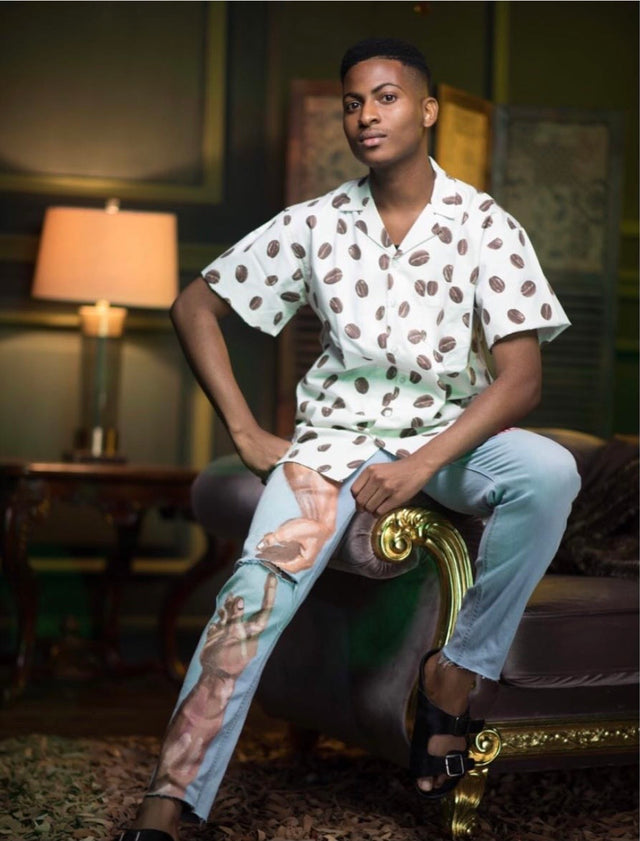Fruché Designer Frank Aghuno on the Importance of Pride and Self-Expression
The fashion industry gives designers a unique platform for promoting advocacy and representation, and Fruché founder Frank Aghuno recognizes that power. Fashion relies on the unabridged freedom of expression, and Aghuno uses his designs to give himself and others that ability. He describes the Fruché woman as someone who will never compromise the freedom or comfort for anyone. As someone who often felt silenced in his youth, Aghuno utilizes his platform to let his personality and passion shine through.
Aghuno started designing at a young age as a way to express himself as a quiet, shy boy. He wasn’t interested in what his peers were into and he describes himself as “awkward, extroverted and not very social.” But when he began cutting up his mother’s ankara fabrics to fashion them into clothes for himself, it made him happy and kept him busy. “I found my voice in fashion, creating and storytelling,” he says.
The Folklore spoke to Fruché founder and designer Frank Aghuno about Pride month and how advocacy and self-expression are essential to his work.

What does Pride month and LGTBQ+ advocacy mean to you and your brand?
Pride month signifies a celebration of love, people and most importantly freedom. Freedom of expression and freedom to be our true selves.
How do you incorporate your advocacy for feminism and gender equality into your designs?
Storytelling is a very important part of what we do. Since I was young, people always had something to say about me; the way I walked, the way I talked, the way I dressed, and so I had to shrink myself. That was around when I started high school. Even my family would criticize certain things I did or the way I did them. Fruché for me means freedom to be our authentic selves. The Fruché woman doesn’t shrink herself for anyone – that’s the beauty of our story and designs.
What kind of obstacles does your culture or the fashion industry present when you advocate for these issues?
I think the fashion industry is generally open-minded and progressive to an extent, even though there are some people or aspects of the industry that might not be. Our culture, and especially our government, shy away and frowns upon issues pertaining to progression and it is deeply upsetting because that just means we’re actively choosing to remain stagnant.
Do you think that fashion design provides a good platform for you to speak out about the issues that you care about?
Yes, I think fashion design has helped me a lot in terms of curating my thoughts and it has given me a global platform to showcase our rich culture but also a bigger voice to push for change and highlight some of the challenges a lot of Nigerians face and many other people around the world relate to.
Shop the Fruché collection here
Words by Claire Blaha

